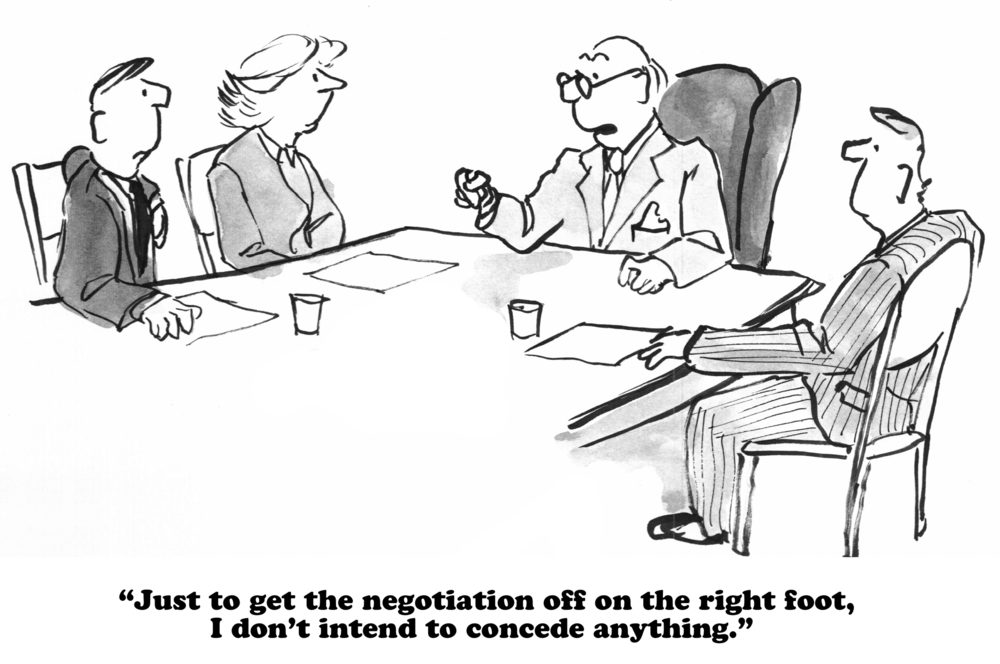Advertiser Disclosure: Many of the companies featured here provide compensation to us. This is how we maintain our free service for consumers. Compensation, along with hours of in-depth editorial research, determines where & how companies appear below.
Tips To Negotiate Credit Card Debt
If your credit card debt is so high that monthly payments are rivaling your rent or mortgage, then you will have to negotiate your credit card debt. Similarly, if excessively high-interest payments have made it too hard for you to bring down your credit card debt, then you should negotiate credit card debt with your lender.
Average Credit Card Debt
The average credit card debt among consumers stands at around $3,000. The 2018 Census Bureau information showed that the median household income was almost $62,000. So when you factor in the high credit card debt with other debts such as car loans, student loans, mortgages, personal loans, and other forms of credit then it is clear that a substantial portion of the average household goes towards debt servicing.
If you are finding it hard or impossible to pay back your dues, then here are the steps through which you can negotiate credit card debt.
Find out the Aggregate Amount
The total credit card debt that you owe may not be very obvious since consumers often keep several credit cards for their respective rewards and benefits.
If you too possess more than one credit card, then you should make up a list that shows the debt for each card. In front of the individual amounts you should also write down the interest rate. Also add the customer support numbers for your credit cards in the list. You will now have all the necessary information in one place to negotiate your credit card debt.
Consider All Options before You Negotiate Credit Card Debt
Before you call customer support to negotiate credit card debt, you should be certain about the kind of settlement that will suit you best. You should take a look at all the available options before deciding which one is optimal for you. All choices have their unique ramifications as well as tax consequences. Here are certain options that you may want.
Debt Settlement
Debt settlement firms negotiate credit card debt for their clients. They will negotiate on your behalf with lenders to reach a settlement where it is easier for you to pay back. The debt settlement company gets paid a percentage of what you save.
Debt Settlement is generally the best alternative if you are considering filing bankruptcy.

Lump Sum Settlement
If you can afford to pay a large enough lump sum amount, you may request your credit card issuer to forego the interest or at least relieve much of the interest cost. You will thus have to largely pay for the principal amount. The trouble is that you must have enough money at your disposal for this method to work. Even if you have the cash, the credit card issuer can still reject this proposal at their discretion.
Debt Management
Nonprofit debt management firms can negotiate credit card debt at the behest of their financially stricken clients. So if you are inundated with large credit card debts that are difficult to pay back, you can get in touch with nonprofit debt management firm so that they can leverage their expertise and experience in the field to seek out concessions for you from your lenders.
You will have to pay fees to avail the services of the debt management firm.
The nonprofit firm will create a debt management plan under which you will have to pay a certain fixed amount each month so that your debt is finished at the end of the schedule. Instead of paying creditors directly, you will make payments to the firm which will then pay off your lenders.
However, you will have to qualify to enroll in this program. Also, creditors are under no obligation to agree to all of this.
File For Bankruptcy
Nobody wants to file bankruptcy. It’s the kind of thing that follows you for a long time – when applying for a job or credit. If you have ruled out every possible alternative, including debt settlement and coronavirus relief, then it may be the only course you can take.
Understand Risks Before You Negotiate Credit Card Debt
One key point to keep in mind is that you must weigh the pros and cons of each method outlined above before you use it to negotiate debt. Some methods (like debt settlement and debt management) may go on for a protracted-time period and still fail to provide you with any concessions. Thus, you run the risk of wasting time and piling on the interest. Your credit score will take a setback if you reach a settlement since this will be reported to credit bureaus.
Beware of tax consequences. Any debt forgiven is considered taxable income for which you will owe taxes.
Talking to Credit Card Issuers
You should make a list of all pain points and grievances to maximize the chances of assent from your lenders. If you negotiate credit card debt through a firm, you should provide this list of grievances and explain your dire circumstances so that they mention these key points when they negotiate credit card debt on your behalf.
Written Agreement
If you happen to reach a settlement with your credit card companies, take the agreement down in writing and have it signed. A written and signed agreement is necessary so that there is no confusion later on about the terms and conditions agreed upon.
If the current crisis is responsible for your fiscal problems, you could negotiate credit card debts with a certain degree of confidence since credit card companies are in general offering concessions to distressed customers.




